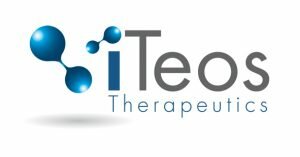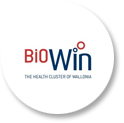Founded in 2011, iTeos began its activities at the end of 2012. The company is active in the field of cancer immunotherapy and focuses on the tumor micro-environment to develop innovative drugs. iTeos benefited for its launch from the results of the BioWin ‘Cantol’ project, which objective was to discover and validate inhibitors of IDO1. These are immunomodulatory candidate medicines designed to inhibit the tumor mechanism to escape from the immune system.
You created iTeos in parallel with the Cantol project that was a good accelerator
Michel Detheux, CEO at iTeos Therapeutics: “Indeed, we integrated IDO1 targets that were studied during the Cantol project. The results we got during the project strengthened the interest in that target and for a new drug discovery program. This program was a real success and consequently we signed a deal with Pfizer, allowing us to start a phase I clinical trial in Augustus 2016. Furthermore, the Cantol project allowed us to benefit from substantial support from the Walloon Region. In four years time, we received 10 million euros in grants, partially granted by BioWin.”
What was the aim of the Cantol project?
Michel Detheux: “To understand this you have to begin with the fundamentals and explain how a tumor can develop and escape from the immune system thanks to a mechanism called immunosuppression. To put it simply, T-lymphocytes recognize foreign antigens, expressed by cancer or any other pathogen agents. T-lymphocytes need tryptophan, an essential amino acid, to function properly. To defend itself, the tumor expresses two enzymes that break down the tryptohaninto kynurenine, IDO1 or TDO2. This is the same mechanism that a pregnant woman uses to tolerate her foetus, which is a foreign body due to the expression of paternal antigens. The tumor has hijacked this mechanism to become invisible just like the foetus throughout the pregnancy. In the tumor micro-environment, we observe a reduction in the concentration of tryptophan and an increase in the concentration of kynurenine, that inhibit T-lymphocytes. If you block these enzymes, being the original aim of the Cantol project, you will restore the tryptophan concentration, reduce the concentration of kynurenine and thereby restore the capacity of the T-lymphocytes to attack the tumor. In only two years time, iTeos developed inhibitors against these enzymes as candidate drugs.”
Cancer immunotherapy is not new, why the rush to develop this therapy that we are seeing today?
Michel Detheux: “It is true that the concept of cancer immunotherapy has existed for decades, but results have only been demonstrated since 2011 with Yervoy, an antibody that blocks an inhibitory mechanism of the immune system. It provoked a change of paradigm and a genuine revolution in this field by increasing significantly the percentage of patients who were totally cured. Since 2011, the pharmaceutical industry and its clinicians have obtained extraordinary results – between 10% and 40% of patients, according to their degree of sickness and treatment, are in complete remission.
Upon the discovery of the IDO1 inhibitors, you signed a deal with Pfizer.
Michel Detheux: “In 2014, we sought financing opportunities to develop the iTeos activities. I was in contact with 42 investment funds and 28 pharmaceutical companies. Finally we concluded an agreement with Pfizer worth EUR 24 million upfront, on top of this we will receive milestone payments and royalties.”
Is iTeos aiming to become a leading player in immunotherapy?
Michel Detheux: “iTeos Therapeutics has the ambition to become an international player in its domain. We started with just 4 people when we launched our activities in 2012. Between January 2015 and April 2016, the company expanded to 40 employees. The team includes 14 different nationalities and attracts people from all over the world. The Chief Scientific Officer and Chief Medical Officer have a career of 20 years in the US. What is important for me is to integrate all this expertise, enabling us to move from the target discovery to clinical trials. We plan more Phase I trials with our own programs, one at the end of 2017 and hopefully two in 2018. For a biotechnology company reaching the clinical trial stage is a real milestone in creating value, so it is extremely important for us, also in terms of the continuity of activitie,s to arrive at that point. My ambition is to be a company that lasts, one with long term activities of world-class quality.
You mention “another partner”. Do you have any other collaborations then with Pfizer?
Michel Detheux: “We also concluded an agreement with AdimAb, which has a technology to express human antibodies on the surface of yeast. We are using this strategy to expand our drug discovery programs with antibodies. Not just with small molecules as illustrated by the IDO1 program but also with antibodies, elements that are very important in immune-oncology. AdimAb is very efficient to move very quickly in identifying candidate drugs. We are speaking in terms of a few months whereas conventional technologies take several years.”
What are the iTeos activities at present?
Michel Detheux: “For our cancer immunotherapy, we have a very effective partnership with the Biopark in Gosselies to test the molecules in vivo. We also develop translational medicine strategy to select the patients’ and biomarkers we’ll target during the clinical phase and design the molecules accordingly. Other activities such as medicinal chemistry, pharmacology, toxicity and production of clinical batches are subcontracted to key international players.
At present we have five proprietary programs running in addition to the two partnered“small molecules” programs of which I spoke earlier: IDO1 and TDO2.
Our first program is based on a strategy called the ‘best in class’, these are existing molecules that we improve to make them more effective for applications in immune-oncology. This program is beginning to deliver and will enable us to arrive at a clinical stage by the end of 2017. Another “small molecules” program targets an important mechanism to activate T-lymphocytes.
Finally, we have three antibody programs that are targeting the T-lymphocytes. These targets were selected thanks to our knowledge in tumor immunology. Our ambition is to bring one to three programs to the clinical stage by the end of 2018.
And we do not plan to stop there…!”
What else do you have in the pipeline?
Michel Detheux: “The strategical partnership with Pfizer gave us the opportunity to start our first projects. In addition to the five proprietary programs I just mentioned, we validated a target discovery platform. We identify new targets and thereby develop an original portfolio in the medium term, based on unknown tumor mechanisms in addition to those that we have known about for years. We try to reproduce the mechanisms that the tumor uses to develop immunosuppression. This permits either to discover new target or to reposition existing drugs.
This platform is the result of the cooperation with Pfizer but we can develop it independently. It is an important asset for iTeos to further develop its activities. In the long term, this will allow us to create our own combinations to go to the market and hopefully make us the partner of choice for other pharmaceutical companies at world level.“
http://www.iteostherapeutics.com
Location
Head Office & Mailing
Rue Auguste Piccard 48

6041 Gosselies
Belgium
Laboratory & Offices
Rue Clément Ader 16
6041 Gosselies
Belgium























